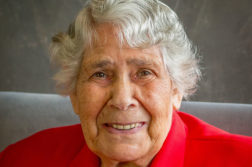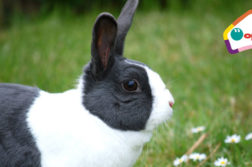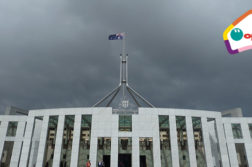Perpetual killjoy Chris Graham is not amused. Here he explains why you shouldn’t be either.
At the outset, I’ll concede that Meat and Livestock Australia has come a long way from the days of Sam Kekovich staring into a camera and lecturing a nation about how to be an ‘ocker’.
The latest Australia Day Lamb ad, released yesterday, has 10 times the production values, and much better gags. But it was coming off a very low base.
In my kinder moments, I think there’s a lot to like about the ad. But only when I think about it purely as a piece of marketing and comedy, and ignore what the issue is really all about.
Before I get to that… the ad appears to be a genuine attempt at sensitivity and inclusiveness. It wasn’t, however, always going to be that way, as Buzzfeed’s Indigenous affairs reporter Allan Clarke revealed in November last year when he was leaked a version of the original script.
In that iteration, Aboriginal people were depicted as mostly confused, and they apparently arrived in Australia by canoe. All of that has been written out, thankfully, in the version that has finally aired. By contrast, the three Aboriginal actors are very much in control as the hosts of the ‘party’, and they take a few pointed jabs at the British (the parts of the ad, admittedly, I really liked). The hat-tips to ‘boat people’ and to ‘float people’ (the LGBTQI community) are particularly welcome.
As a piece of advertising and marketing, it’s clever and well produced. But as a comment on Australian society and values…. well, no matter how much lipstick you put on a pig, it’s still a pig.
In a nutshell, the most exceptional thing about the MLA ad is its determination to avoid the elephant in the room. All it really is is an aspirational statement about what our national values should be. Blokey BBQs, everyone being made to feel welcome, embracing all cultures etc etc. But while they might be our stated national values, they’re not our actual national values. Indeed they’re not even close.
Unfortunately, that’s the least of the MLA ad’s problems. It’s wrong and offensive not for what it says, but for what it doesn’t say.
For example, it said nothing about what the date of Australia Day actually represents. That is, the theft, dispossession and slaughter of another people. I’m sorry folks, but in the world of ‘choosing things to gloss over’, Australia’s treatment of its First Peoples really shouldn’t be on the list. It’s basically the Australian equivalent of Holocaust denial.
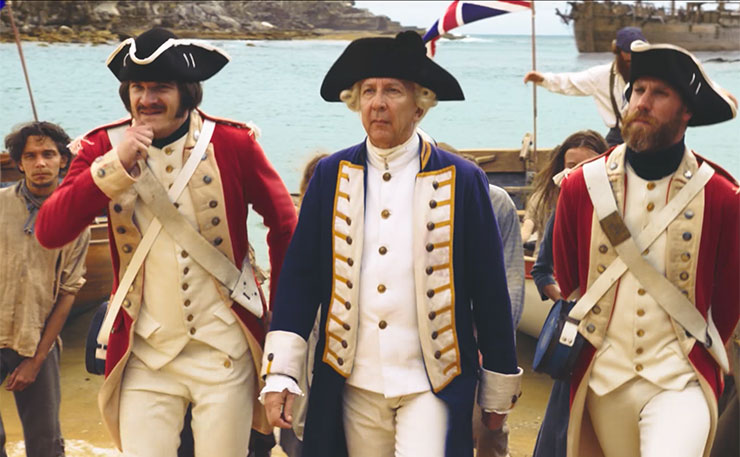
If you want to get just a tiny sense of how it might feel to an Aboriginal person to have their history ignored, try and imagine the public reaction if MLA made an ad about Anzac Day, and they mentioned everything except the sacrifice Anzacs made (and let’s not forget what happened to Woolworths when they made an ad that did mention the Anzacs).
If we want to heal the gaping wound of this nation, we’re not going to get there with funny ads for meat. And we’re definitely not going to get there by pretending the slaughter never happened, and that the dispossession isn’t ongoing. We won’t heal by merrily skipping past the most significant event in this nation’s history.
The second thing the ad didn’t say was the words ‘Australia Day’. Literally, the phrase wasn’t even uttered.
Not mentioning the words ‘Australia Day’ doesn’t make it not an ad about Australia Day. And Australia Day is the problem.
It’s a bit like doing an advertisement about rape, theft, dispossession and slaughter – all of the things that happened to Aboriginal people at the hands of invaders (and settlers, and more) – but neglecting to mention… the rape, theft, dispossession and slaughter. So instead, you just have a cast of happy, multicultural people essentially selling the message ‘it’s all okay now’. Oh, and ‘buy our meat’.
But it’s not all okay. Here are the facts.
We still jail Aboriginal people at – literally – world record rates. Western Australia has the highest Indigenous jailing rate on earth and it’s more than eight times greater than the jailing rate of black men during Apartheid South Africa.
In the Northern Territory, 96 per cent of children (and almost 90 per cent of adults) locked up are Aboriginal. They make up less than one third of the population.
Of the eight states and territories, only two – NSW and the Northern Territory – have anything remotely resembling fair and just land rights.
Poverty in regional and remote Aboriginal communities is endemic. Many resemble the third world.
Aboriginal people in some parts of Australia have the highest recorded rates of rheumatic heart disease on earth. This is a disease of poverty, borne of terrible living conditions. In many communities, it’s common to find dozens of people living in a single, run-down house.
And that’s just the blackfellas. Our national values, obviously, extend further than First Nations issues.
We still jail men, women and children on island hell-holes for the crime of seeking asylum. We make it intentionally torturous as a deterrence, in flagrant breach of international law.
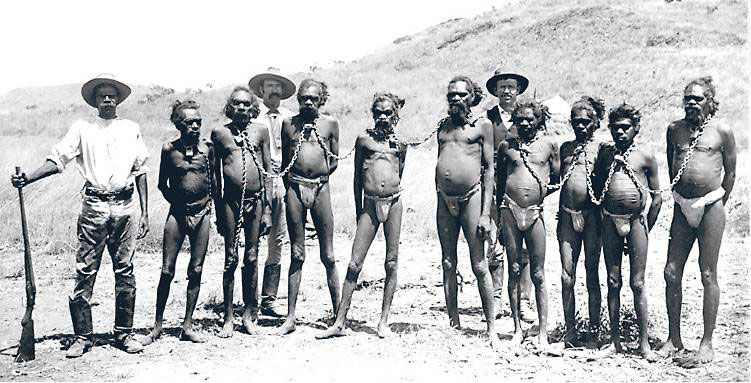
Men still kill one woman on average every week. At least one in five Australian women have been raped, but the true number is likely much higher. Many, many more have been sexually assaulted. Indeed, I could count on one hand the number of women I know personally who claim never to have been sexually assaulted. And I would have fingers left over.
In South Australia, men can still murder other men and claim the ‘gay panic defence’ – that they were terrified of a homosexual advance, and snapped. If they can convince a court of this, their crime is reduced to manslaughter.
Our military has participated in foreign slaughters (Syria, Iraq, Afghanistan) and we’ve turned a blind eye to others (Palestine).
We’re destroying our landscape, in particular the Great Barrier Reef, yet despite this we’re the third largest exporter of coal in the world. We have the fifth highest extinction rate on earth, and we’re in the top 10 for the highest number of mammals facing the threat of extinction.
And yet, if you drank from the MLA Cool-Aid and got your entire ‘national story’ from the lamb ad then you could be forgiven for thinking Australia is a tolerant, happy, well-adjusted nation. We are not, and never have been (and I’m not suggesting you would get your national story from an ad, but the MLA ad has become an important annual comment on Australian values, by design, thus it should be open to greater scrutiny).
The fact is, the nation I know bears no resemblance whatsoever to the nation being depicted in the lamb ads. It is entirely aspirational, and frankly, ‘aspirational’ is worth a pinch of shit when you’re still doing and denying much of what we did and denied almost 230 years ago.
On the upside, when an organisation like Meat and Livestock Australia – a body synonymous with ‘Aussie Aussie Aussie oi oi oi’ fudges on the words ‘Australia Day’ in the biggest advertising campaign of its calendar year, then you know the issue is now officially ‘on the nose’. Another welcome development, because Australia Day is to sensitivity and truthfulness as Donald Trump is to nuance and stability.
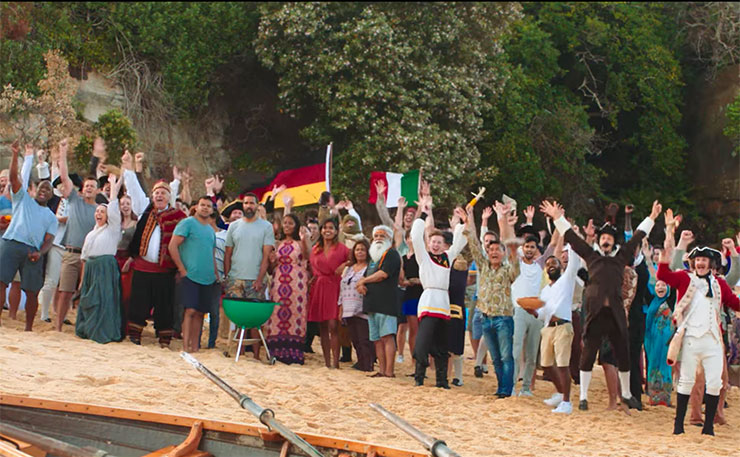
And again, on the upside, the fact that MLA can acknowledge Australia Day is poison should help open a national conversation about what January 26 really represents, and whether or not it should be retained.
On that front, it’s a pretty complicated issue, and it’s understandable that many Australians find it deeply confusing. So here’s a very quick, somewhat over-simplified guide to help you get your head around it.
Change the date
Aboriginal people have been protesting Australia Day since 1934. January 26 was officially proclaimed ‘A Day Of Mourning’ in 1938, and it’s also variously been called Survival Day and/or Invasion Day ever since.
By contrast, and contrary to popular belief, Australia Day has only been a national holiday since 1994.
There has long been a push within Aboriginal communities to ‘change the date’ to a day that is more inclusive… any date but January 26. In more recent years, however, some Aboriginal people – particularly younger Aboriginal people – aren’t even interested in that.
Long story short, Aboriginal views on ‘change the date’ are very mixed. But there is one issue on which a substantial number of Aboriginal people agree: no matter what the date is changed to, Aboriginal people will never celebrate Australia Day, because it doesn’t matter what day you move it to, it still represents theft and slaughter.
Treaty, yeah?
Australia has never addressed the issue of national land rights. It’s never allowed for real self-determination. It’s never signed a treaty. It’s refused compensation for Stolen Generations. It still hasn’t paid back much of the Stolen Wages.
The only date that many Aboriginal people would ever consider celebrating as a national day (and bear in mind, even if that occurs, many Aboriginal people do not and will never identify as ‘Australian’) would be a date that marks the formal recognition of Aboriginal sovereignty by the Australian Government, and the signing of a Treaty.
This has been done in other colonized nations – Canada, the US and New Zealand.
Changing the date from a white perspective
Changing the date of Australia Day is not an ‘Aboriginal issue’. It’s an ‘Australian issue’, and all Australians have a stake in it.
Personally, I want the date changed because I don’t want my national day to be one which celebrates the slaughter and dispossession of someone else.
Celebrating on January 26 is clearly offensive and indefensible, and says a great deal about a nation and it’s maturity. It says something about me personally as well, as a part of that nation.
On that front, I’m part of a group (Sparkke Change Beverage Company) based in Adelaide that recently launched a beer literally called ‘Change the date’. You can find out more about it here. A few decades of agitation on this issue hasn’t got us very far, so we thought we’d try a different tack!
Defending Australia Day
The only ‘defence’ available to January 26 is ‘it’s time to move on’. The problem with that is that in a decent society, we generally don’t get to tell the victims of a crime when they need to get over it, particularly when the crimes are still occurring (see Ms Dhu, Mr Ward, Mulrunji Doomadgee, Kwementyaye Ryder, Kwementyaye Briscoe, RCIADIC, NT intervention etc etc).
The other problem with that defence is that the same point could be made about Anzac Day… how many times do the diggers need to be thanked? Surely it’s time to move on?
How do we move forward?
A respectful national discussion about Australia Day is the only way forward. Both Labor and Liberal have tried repeatedly to shut the conversation down (Kevin Rudd actually promised to change the date if elected to office in 2007… and then didn’t), so it will have to be had in the absence of their ‘leadership’.
What comes of that discussion is anyone’s guess. As a nation, we might choose another day to celebrate ‘Australia Day’. As an example, Fremantle now celebrates it on January 28. But whatever date we might settle on, the unresolved problem of ‘Australia Day’ as a name remains. It’s not going away, and it will, eventually be addressed.
In NZ, their national holiday is Waitangi Day, celebrated on February 6 every year to mark the signing of the Treaty in 1840.
That’s not to suggest there aren’t ongoing problems in Aotearoa – there are. The NZ Government has breached the Treaty numerous times. But it provides a foundational document for Māori to hold government to account in the courts, and that’s also happened numerous times.
Waitangi Day is a day that all Kiwis can celebrate. That’s what Australia needs, that’s what Australia lacks. The question is, which generation of Australians has the courage to honestly face our past, and earnestly map a genuinely inclusive future.
Postscript
If you’re not sure how to feel about the ad, why not ask an Aboriginal person who they feel about it. And if you don’t know any Aboriginal people… well… that kinda should tell you something already.
A lot of non-Aboriginal Australians think the ad is great. It’s just an ad, after all, not an annual comment on Australian society (keep telling yourself that… denial can be a happy place to hide). But if you’re also one of those Australians who thinks we really do need to address what we’ve done to First Nations people – that we need to start seriously healing the scars of our past – then you really should stop and think about what this ad represents, how ‘other’ people might feel about it, and most importantly, what it doesn’t tell you about our nation.
Donate To New Matilda
New Matilda is a small, independent media outlet. We survive through reader contributions, and never losing a lawsuit. If you got something from this article, giving something back helps us to continue speaking truth to power. Every little bit counts.




